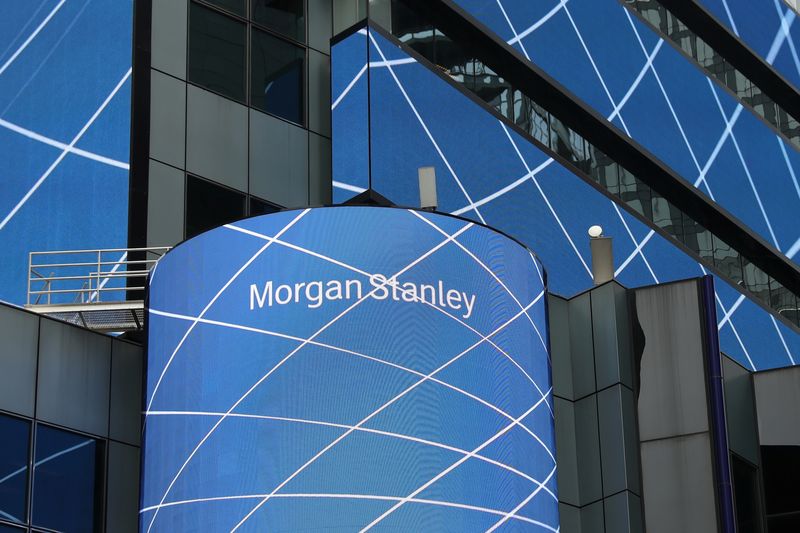By Chris Prentice and Jonathan Stempel
NEW YORK (Reuters) -Morgan Stanley agreed to pay $249.4 million to end years-long criminal and civil investigations into its handling of large stock trades for customers, U.S. authorities said on Friday.
The settlements with the Department of Justice and Securities and Exchange Commission resolve charges of deception, fraud and compliance failures over so-called block trades.
They also end a longstanding legal worry for the Wall Street bank, which entered a three-year nonprosecution agreement and will not face criminal charges.
Block trades can move stock prices because of their size. Hedge funds and other investors that know such trades are coming can make money by placing their own trades in anticipation.
Despite promising to keep the information confidential, two traders passed on information about impending block trades to various investors. Authorities said this let Morgan Stanley (NYSE:MS) reduce its risks when purchasing the trades, win business, and generate more than $100 million of illegal profit.
Morgan Stanley admitted to making false statements in connection with block trades from 2018 through August 2021.
Its $249.4 million payment includes fines, restitution and the forfeiture of ill-gotten gains.
"The integrity of our financial markets requires a level playing field," said James Smith, assistant director in charge of the FBI's New York office, which helped investigate the matter. "When individuals and institutions intentionally tip the scales there must be consequences."
The Justice Department agreed to hold off prosecuting Pawan Passi, 40, former head of Morgan Stanley's U.S. equity syndicate desk, who entered a deferred prosecution agreement and admitted wrongdoing.
U.S. Magistrate Judge Robyn Tarnofsky approved Passi's agreement at a hearing on Friday.
Morgan Stanley said it was pleased to settle, and confident in upgrades it has made to its policies, training and surveillance.
"The core of this matter is the misconduct of two employees who violated the firm's policies, procedures and our core values," the bank said.
The bank disclosed last May it had been in talks with authorities to resolve the probe.
Authorities said a second employee, who was not identified and not charged, worked on the equity syndicate desk.
George Canellos, a lawyer for Passi, said he was pleased the U.S. attorney's office in Manhattan did not pursue criminal charges against his client.
He said the resolution lets Passi "move past two very difficult years of intense government scrutiny of the block trading practices on Wall Street."
Passi was charged with one count of securities fraud, which would be dropped after six months if he complies with his deferred prosecution agreement. He pleaded not guilty in federal court in New York on Friday.
"You have been given a real opportunity here to avoid a criminal conviction," Tarnofsky told Passi at the hearing, adding she hoped the charges would be dismissed in the future.
He admitted to promising sellers of large blocks of stock that he would keep details about the sales confidential, despite knowing he would disclose the information to others.
Authorities did not fine Passi, noting that he had already forfeited $7.4 million in compensation.
He was discharged from Morgan Stanley in November 2022 amid scrutiny of his communications about impending block trades, brokerage industry records show.

It is unusual for prosecutors to give deferred prosecution agreements to individuals, but Passi's conduct fell into a legal "gray area," said New York lawyer Bob Frenchman.
"Traders are allowed to do anticipatory hedging, and there have not been clear standards on what you can and cannot do," Frenchman said. "Prosecutors really would have been pushing the boundaries and taking significant risk to go to trial."